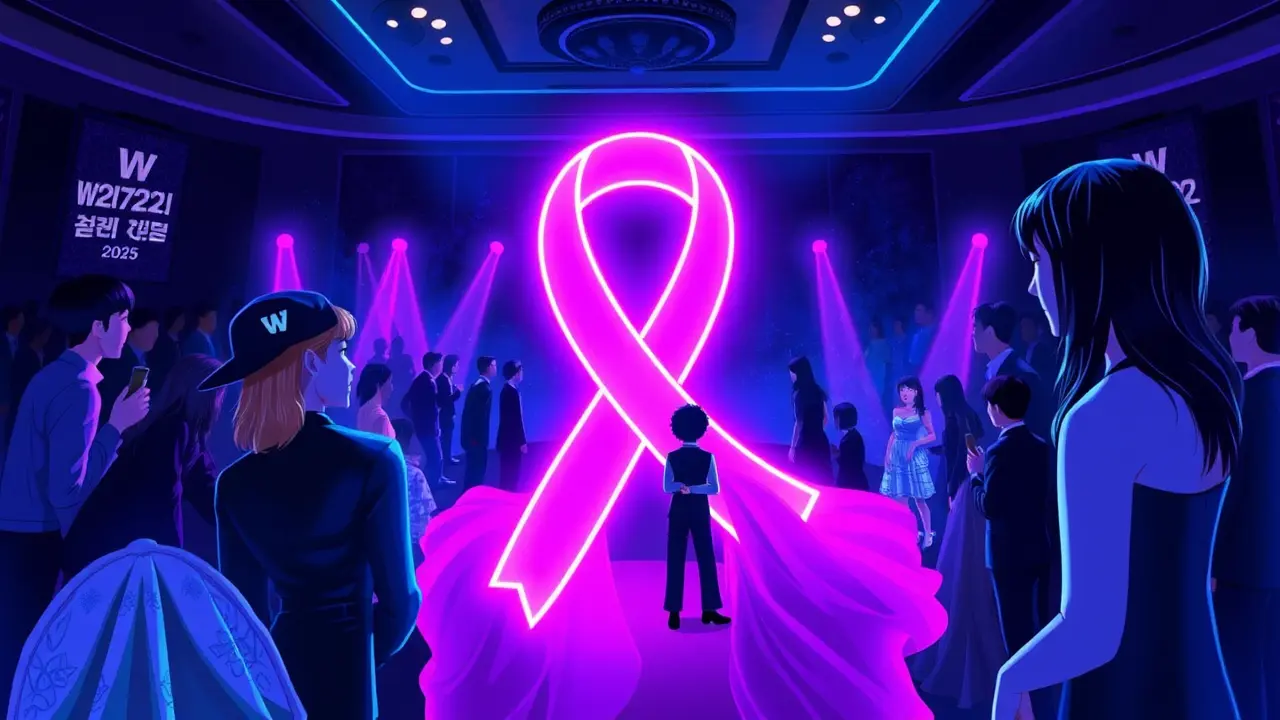Celebrity Backlash at Cancer Fundraiser
The glittering spectacle of W Korea’s ‘Love Your W 2025’ breast cancer awareness gala, held at the opulent Four Seasons Hotel in Seoul’s Jongno district, has erupted into a full-blown celebrity scandal, proving that even the most well-intentioned philanthropic efforts can be derailed by the blinding glare of the spotlight. What was meant to be a solemn gathering to champion a life-saving cause swiftly devolved into what critics are lambasting as a vapid fashion party, with the evening’s narrative hijacked not by stories of survival or calls for research funding, but by a cavalcade of A-list attendees including BTS’s impeccably styled V and RM, Aespa’s ethereal Karina, and the heartthrob du jour Byeon Woo-seok, whose social media feeds became a real-time portfolio of clinking glasses, designer outfits, and seemingly carefree revelry.The backlash was instantaneous and merciless across online forums and social platforms, where a chorus of disillusioned voices accused the event of committing the cardinal sin of modern celebrity activism: prioritizing brand partnerships and photo opportunities over substantive engagement with the grim reality of a disease that claims countless lives. This isn’t merely a case of bad optics; it strikes at the very heart of a long-simmering tension within high-fashion philanthropy, where the symbiotic relationship between luxury magazines and celebrity influencers often reduces profound social issues to a backdrop for product placement and personal branding, creating a dissonance that can alienate the very communities these campaigns purport to support.One need only look back at the 2014 ‘Ice Bucket Challenge’ to see how viral celebrity participation can successfully marry awareness with action, generating unprecedented donations for ALS research, but the crucial difference was its grassroots, slightly messy authenticity—a far cry from the choreographed glamour of a closed-door, corporate-sponsored soiree where the conversation centers more on who wore what than on the critical need for early detection methods or support for patients undergoing chemotherapy. Industry insiders whisper that the pressure on publications like W Korea to deliver blockbuster editorial content and secure top-tier talent often forces a compromise, blurring the lines between a genuine charity drive and a exclusive industry networking event, a dilemma that event planners grapple with constantly.The fallout from this particular soirée raises uncomfortable questions about accountability and the metrics of success for such campaigns; is it enough to simply have a cancer-related hashtag trending if the accompanying imagery evokes a luxury launch party more than a communal fight against a devastating illness? The reputational damage for the celebrities involved, while likely temporary, serves as a stark reminder that the court of public opinion holds influencers to a higher standard, expecting a demonstrated depth of commitment that transcends a single red-carpet appearance. Moving forward, the debacle offers a crucial lesson for brands and stars alike: in an age of heightened social consciousness, audiences are increasingly adept at distinguishing between performative altruism and authentic advocacy, and the latter requires a narrative that places the cause firmly at the center of the frame, not as a peripheral accessory to the evening’s entertainment.
JE
Jenna Lee123k2 days ago
this makes me want to create a whole new kind of awareness campaign with you, one that's actually raw and real not just another photoshoot
0
JA
Jamie Carter123k2 days ago
tbh this feels like they missed the point entirely smh all that glitters isn't gold
0
